The horn is an important safety feature in your car. Driving your vehicle with a broken horn can be dangerous for you and others on the road. If the horn does not honk in your vehicle when you press the button on the steering wheel, it can have various causes. What these are and what you can do about it, we explain in this article.
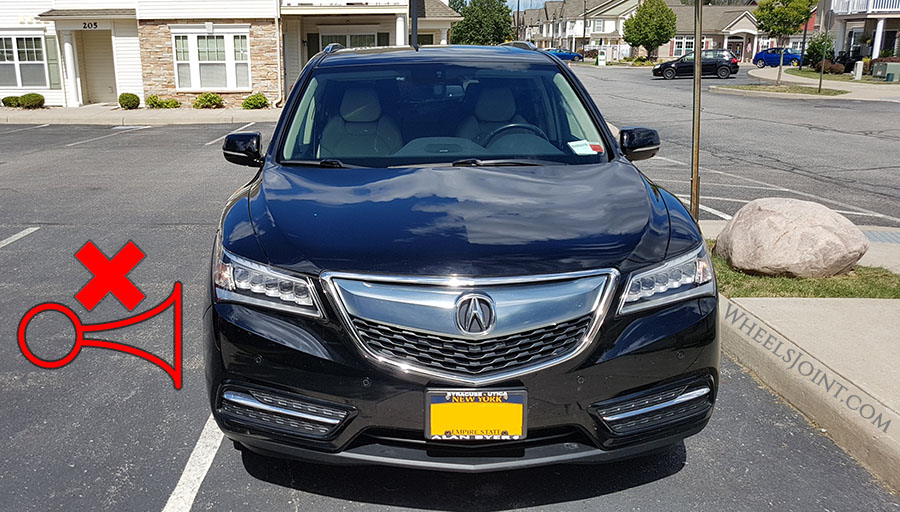
Some of the common causes that stops the horn from working normally on your car are blown fuse, bad relay, faulty horn, corroded or worn out connector, broken wire, broken clock spring or bad horn button.
1. Blown fuse
The horn on your car needs electricity to work. In case of a faulty fuse, the circuit is interrupted and the horn can not work.
Check your vehicle’s owners manual or the fuse box cover to find the exact location of the fuse for the horn. If the fuse is blown, replace it with a new one with the specified amp rating.
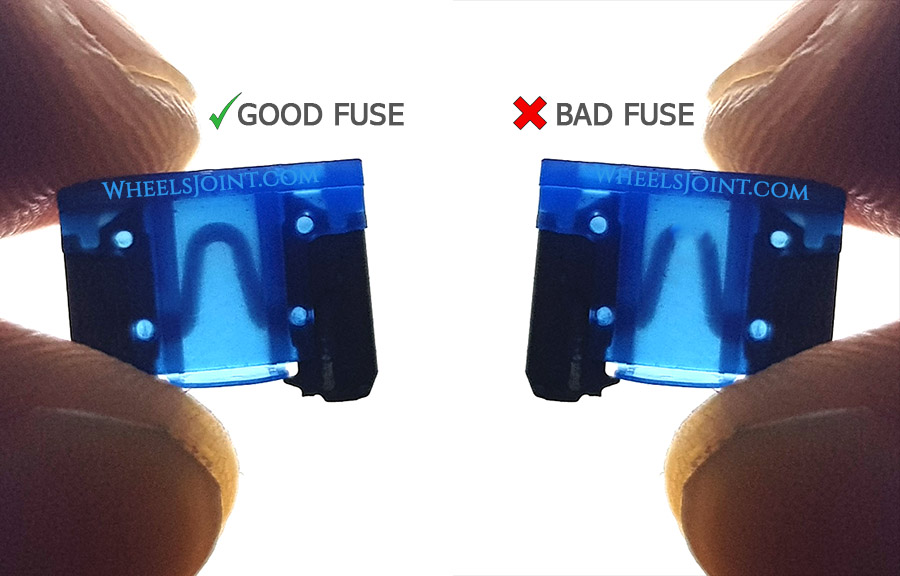
To check the fuse, pull it out of the fuse box using a fuse puller or needle nose plier and hold it against the light. If the metal strip is broken in the middle, the fuse has blown. You must replace it with one of the same amperage and therefore the same color. It does not matter in which direction you insert the fuse.
2. Bad relay
Relays are electromagnetic switches that are used to switch electrical loads on and off. A bad relay can also be the cause of horn failure on your car.
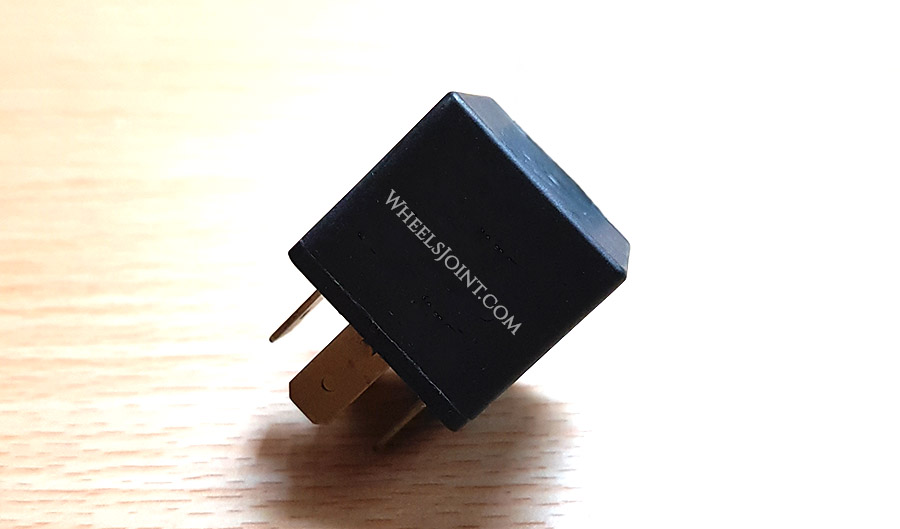
First of all, you should find out where the horn relay is located in your particular model of vehicle. The information may be listed in your vehicle’s owners manual. Typically relays are located in the engine compartment or under the steering wheel on the left-hand side. If you are lucky, the wiring diagram will be drawn on the facing. Before starting the replacement, you must always disconnect the vehicle’s battery.
As soon as you have identified the relay for the horn, you should check whether there is an identical relay in the box, typically you can use AC relay to test the horn relay. With this you can easily test whether the electromagnetic switch is actually the cause of the malfunctioning horn on your vehicle. Most relays are plugged in, but they can still be relatively tight. Be careful not to damage anything when removing the relays. Remember: The battery should be reconnected after replacing the relay – otherwise no current will flow.
3. Bad horn
A broken horn could be the reason why you can no longer honk. Horns rarely break down, they can last decades and can even outlive the life of the vehicle. Still, it can fail depending on how often you use it. In particular, if the horn is working but sounds off, it’s because one of the horns has worn out.
You can test the horn on your vehicle by checking the voltage at the connector or with a test light.
4. Broken wire or bad connector
The horn sits at the front of your car where grime and other small particles can build up over time. This can lead to corrosion on the connector resulting in poor conductivity. You don’t necessarily have to replace the corroded connector, in most cases the connector can be cleaned with WD-40. For safety reasons, make sure the battery is disconnected when cleaning the connector, and the connector is fully dry before you plug it back in.
If you don’t see any corrosion on the connector of your vehicle, then its time to perform the voltage test with a multimeter, or you can also use a test light. Turn on the multimeter and insert the probes into the connector, one at each point making sure the metal part of probes don’t touch each other – otherwise it will short out and blow up the fuse, and may cause damage to the vehicle’s electrical system. After inserting the probes, ask a friend to press the horn button in the vehicle. The multimeter should read 12+ volts, if it reads 0 volts then it indicates conductivity failure in the horn system: a broken wire, bad connector, broken clock spring or faulty switch can be the cause other than blown fuse or bad relay.
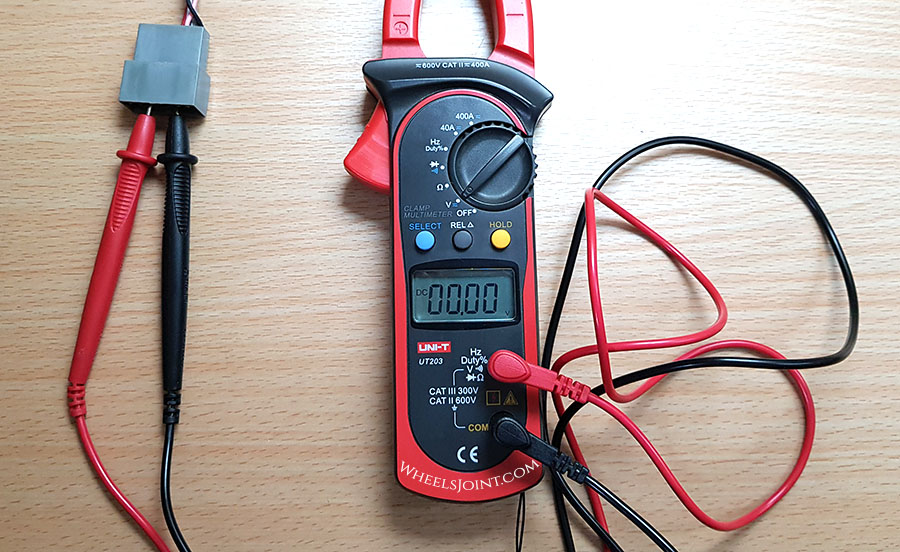
Rodent Damage: If bite marks or the like are discovered, there is a high probability that a rodent has let off steam in the engine compartment of your vehicle. Then it is important to carefully examine all other cables and hoses for damage, including electrical wires for the horn.
5. Broken clockspring
The spiral cable or clockspring is a spiral-wound special rotary electrical connector in your car which allows the steering wheel to turn while still making an electrical connection between the buttons on the steering wheel, including horn button, and the vehicle’s electrical systems. The clockspring is located between the steering wheel and the steering column. The clockspring contains delicate wires that can get damaged during servicing or due to overuse if the vehicle has put on too many miles.
If the clockspring is damaged in your vehicle, you may see other system malfunctions as well. For example, the airbag warning light may illuminate in the instrument cluster, or other buttons on the steering wheel may stop working. But in rare cases, it is possible that only horn wire in the spiral gets damaged.
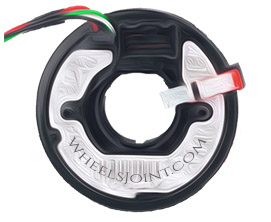
It is not feasible to repair a damaged clockspring. They are relatively inexpensive and once found defective should be replaced with a new one.
6. Faulty horn button switch
Another reason for non-functioning horn can be failure of horn button in the steering wheel of your car. Over time, depending on how frequently the horn has been used, the button may eventually wear out and cease to function.
Conclusion
There are many reasons why the horn may not be working in your car. When looking for the reason, you should always start with the most obvious cause, blown fuse or faulty relay.
In any case, it is advisable for laypersons to visit a workshop as you can easily do more damage to your vehicle, especially to the electrical system. An expert mechanic can diagnose the issue while you sip coffee in the waiting area.










i have a dodge ram truck 2017 1500 and the horn dont work the fuse is good i cant find the relay for the horn can you help me